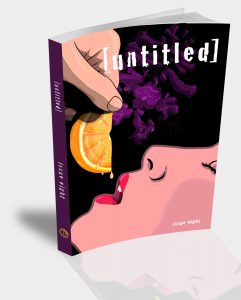

Blog
Welcome to the Busybird blog, where you can find helpful articles, updates, industry news and more. Make sure you stay up to date by signing up to our newsletter below.
The Publishing Landscape
October 24, 2019We periodically put up blogs like this one to educate authors about the publishing landscape.
There are two legitimate streams of publishing:
- Traditional Publishing: you submit to a publisher. They will judge if (they believe) your book is worth publishing. If they accept you, they take all the financial risk to publish you. They will sign you to a contract, and oversee (and pay for) editing, design, printing, and marketing. You might get paid an advance (a small sum of money), or an advance against the royalties (a small sum of money that royalties have to pay off before you see more royalties) and royalties (a small percentage of each sale). For a new author, an advance might be around $1,000 – 5,000. Royalties uniformly will be around 7.5%, which means you get about $2 per book sold.
- Self-Publishing: you organise production of your book, and pay for whatever services you require. But you receive 100% of royalties (although if you get your book in bookstores, they will take a cut). You also keep 100% of the rights.
The murky model is the one where a publisher might claim they have an innovative new business model, and that they’ll share the cost of publication with you. The trade-off, they’ll tell you, is that you’ll get 50% of royalties, rather than just the 7.5%. Wow! That sounds awesome, right? And what makes all this so much more attractive is they tell you that your book is great, and that the market needs a book like yours.
The truth is these publishers will tell you anything to get your money. It’s doubtful they invest anything in your manuscript, other than hiring subcontractors (such as an editor and designer) who they underpay to perform their respective service. And yet this publisher gets to keep 50% of your royalties and 50% of your rights. That means if a traditional publisher wanted to pick you up, or if a film company wanted to turn your book into a film, this publisher would get a cut.
Most people want a traditional publishing deal. The benefits are the validation – a publisher telling you that your book is good enough for the market – and that they do everything to make your book a reality. As an aside, if a traditional publisher rejects you, it doesn’t necessarily mean your book isn’t good enough. Traditional publishers get it wrong all the time. The best example is Harry Potter, which was rejected umpteen times before it made it.
Self-publishing is becoming a viable alternative, as evolving technology has made it accessible and inexpensive. You could produce a book that looks identical to a book that comes out of a traditional publisher. The Martian by Andy Weir and Still Alice by Lisa Genova were both self-published, and became bestsellers, then became films with A-list actors. The difficulty with self-publishing is finding somebody you can trust, and who’ll guide you through the process.
These are the two routes. But here’s a much simpler way to break it down:
- Traditional Publishing: you pay nothing, the publisher oversees the production, and you get a small return.
- Self-publishing: you pay for everything, and you get 100% return, and keep 100% of the rights.
There is no other path. There is no in-between. The moment you pay anything to publish, you’re self-publishing. If you’re self-publishing, you should retain 100% of your royalties and 100% of your rights. There’s no rationale this type of publisher can offer you that validates any claim to these.
Now why do we blog periodically about this?
Because people are getting misled. People are getting ripped-off. People are spending hard-earned money because they’re being lied to and promised things (e.g. bestsellers, film adaptations) that no publisher can guarantee. Multimillion-dollar traditional publishers with all their resources can only take educated guesses at how a book will fare, so anybody else who makes these claims is a liar.
We get authors who think that all publishers operate under the same model (that’s exactly what they want you to think). We hear so many horror stories. We get authors ringing us in tears. We get authors asking if these sorts of deals are normal. We have authors berating themselves for their ignorance.
And it’s frustrating to see good people treated this way.
We have a lot of experience here. Our mandate is to help educate authors. We don’t want you being misled or ripped off. We want you to understand the landscape.
Whoever you publish with, it should be rewarding and gratifying and pleasurable.
So beware of the dangers.
Connection and Journey
October 10, 2019
Why do we connect to certain stories?
The simple answer is because they reflect our own lives.
JD Salinger’s The Catcher in the Rye is about a disenfranchised teenager trying to find his place in the world. It speaks to teenagers who are angry, rebellious, and displaced. Here is a novel that champions them. This is why The Catcher in the Rye became a classic when it was first published in 1951, and why it’s remained popular to this day: the world might change, technology can evolve, but teenagers will always go through certain phases in life. As adults, we’ll remember this dissonance in ourselves. The Catcher in the Rye speaks directly to this.
Think about your favourite book. Is the relationship between you and the book that synonymous?
The likely answer is an emphatic no.
John Green’s The Fault in Our Stars is about two teenage cancer-sufferers who find strength in one another. Paula Hawkins’s The Girl on the Train is about an alcoholic woman on a train who looks out the window and sees a crime. Gillian Flynn’s Gone Girl is about a duplicitous husband and a scheming, psychotic wife who will go to any lengths to save her marriage. Bret Easton Ellis’s American Psycho is about a serial killer. JK Rowling’s Harry Potter is about a child wizard fated to oppose the evil Voldermort. Ian Fleming’s James Bond features a spy who is licensed to kill constantly saving the world from criminal masterminds.
How many of those characters and circumstances reflect our lives?
If we were to only connect to books whose characters and/or events reflected our own lives, our reading CV would be thin. Basic criteria – such as the protagonist’s gender and age – would immediately exclude us. From there, other dissimilarities would amass.
Often, we connect to characters because their journey speaks to our own journey in life. Not one of us wields magic or is fated to fight an evil wizard, but Harry Potter’s struggle can reflect our own struggles to get somewhere against overwhelming odds, and the challenges we need to conquer. We might not be teenagers battling cancer (as occurs in The Fault in Our Stars), but we may connect with that fight to find connection and truth in a fragile environment growing increasingly delicate.
As we move through life, we’re taking our own journey. Those journeys face their own difficulties. We might endure jobs we don’t like, we might suffer tumultuous relationships, we might brave health challenges, etc. – we’re constantly trying to improve our lot.
This is the beauty of books. Often, the facts are garnish to what’s going on in the story. It’s about the journey – the struggles characters face to better their circumstances.
This is something we all share, and why we can connect with stories that may have nothing to do with our lives.
They take us somewhere that we want to go within our own lives.
Think about your favourite books.
And then ask yourself why you connect to them.
The Closet Editor
September 26, 2019Once you finish writing your manuscript, what do you do next?

- Submit it somewhere
- Give it to friends to read
- Revise.
If you answered number 1 or 2, you’re wrong.
A first draft shouldn’t go anywhere. You might think it’s brilliant. It’s probably not. A first draft is a spill: ideas, prose, phrasing, idiosyncrasies, crap, and much, much more, all come tumbling out. Flawless final drafts don’t exist, so how do you think a first draft fares?
A publisher or journal is going to spot the bad stuff immediately. If you think they’ll look past it to the good stuff, well, nope. Even as they’re reading, they’re considering the amount of work it’ll require to bring something up to a publishable standard. Issues will also provide an insight into the author’s capability to fix content. Once these crosses start mounting up, readers will ditch your submission and jump to the next one on the pile.
Getting feedback from friends and alpha readers is great. Getting a manuscript assessment – by an editor trained to spot issues, and explain how to address them – is even better. But don’t hand over your writing if you know there are issues. It’s redundant if readers are just identifying issues you already knew existed. They should be asked for feedback after you can no longer get anything more out of your work yourself.
This means you have to revise.
And revise.
And revise.
Work on your writing until you can’t get anything more out of it.
Now some authors might complain they don’t have the capability for revision, but writing and editing use the same part of the brain, but just in different ways.
Here’s a few tips to help you:
- Be ruthless. You’re not there to embrace, laud, or fall in love with your writing. You’re there to identify weaknesses and address them.
- Be clear on the intent of your revision. Assign different motivations to each revision. One might focus on structure. Another might look at copy (e.g. grammar, punctuation, spelling). Another might examine flow. Etc. Obviously, you can address every facet peripherally on each pass, but there should always be one central, driving focus.
If you’re grimacing or scoffing at the thought of multiple revisions, welcome to the world of writing. Sometimes, you might perform multiple revisions on just one facet (e.g. the structure) before you look at the way the story is flowing. - This isn’t a race. Too many people are in a hurry to get their writing out into the world. Enthusiasm is laudable, but never let it usurp patience. You have one chance to make a first impression. Would you rather do it with a hastily revised manuscript, or something you’ve taken time over?
- Nor is this a test of endurance. You don’t have to revise big chunks in a single sitting. If you try to, your mind will inevitably wander and you’ll miss stuff. Break it up. Keep it manageable. If you know you have a point where you tire, stop and refresh, or come back to it the next day.
- Don’t be too hard on yourself. Or your work. Revision will always drum up doubts on your ability. That’s fine. Writing is an endeavour where we will frequently question ourselves. Just understand that this is a continuing journey towards improvement.
Writing is hard work. Writing well requires constant revision. Like writing, revision is a muscle that needs to be developed.
As it develops, it will work in conjunction with the writing muscle.
Every writer has the ability to be their own editor. Every writer is, in fact, a closet editor.
If you’re interested in learning more about editing and revision, on Monday, 30th September, 10.00am – 4.00pm, I’ll be running a workshop, After the first draft: the mechanics of revision, for Writers Victoria.
Book now to learn about techniques you can apply to revision, and learn what to look out for.
Mental Health and Writing
September 12, 2019
Mental health is back in the public discussion following the tragic death of AFL legend Danny ‘Spud’ Frawley.
It’s a shame that we only start talking about mental health again after something happens.
Growing up in the 1980s, mental health was stigmatised. Nobody talked about issues. Males were told to, ‘Man up’, and to brave through it. I was often advised, ‘Don’t worry’, and asked, ‘What do you have to worry about?’
For some, the cause of mental health issues can be obvious, e.g. a traumatic event, or a difficult upbringing. But, for others, the cause may not be clear. Clinicians can theorise about chemical imbalances, environment, and hereditary markers, but nobody genuinely knows the why behind it sometimes.
It’s not a sign of weakness. Conditions such as anxiety, depression, OCD, etc., have debilitated powerful people and towering intellectuals. These conditions don’t discriminate. They don’t care. And people who think they would overcome such a condition easily, or that it wouldn’t affect them at all, just because they’re too strong, too smart, or too wilful, just don’t know better. You might as well try that logic on a physical malaise, like a broken leg. See if that sort of attitude works there.
Many writers suffer mental health issues. I guess this is for various reasons:
- writers are extremely empathetic. How else do you write from the point of view of an elderly man one moment, a middle-aged woman the next, and a child the next? Most people only understand empathy from their own experiences, and from their own point-of-view. Writers are constantly dipping into the heads of all sorts of people, which expands (and deepens) their empathy.
- writers are often thinking about terrible stuff. We have to. Books about couples living an idyllic life, or the spy who takes a two-week vacation and sits on a Caribbean beach, don’t sell. A book about a love triangle threatening to tear a couple apart, or the spy who saves the world from annihilation, does. The brain’s not that bright also. You can put yourself in a bad or sad or angry mood just by drawing on a relatable memory. How does the brain react to thinking about all this fodder? It produces the same physiological response that it would if you were actually going through these things.
- writing is an isolating experience. As humans, we like to connect. We belong to packs. Most people go to a workplace where they interact with others. That’s not the case with writing. With writing, it’s just you and whatever you’re writing for long stretches. People become a hindrance.
There are other contributors. But these three intertwine, complement, and exacerbate one another. The result? Writers become highly sensitive, incredibly vulnerable, and feel deeply. That’s great for writing. It’s not always so great for everyday life – especially when confronting issues that should be dealt with or dismissed, rather than ruminated upon (and/or catastrophised).
Nowadays, people can talk about mental health issues without fear of being stigmatised. Unfortunately, this has provided some with an excuse for their actions. I’m sure most people can think of a celebrity or two who have cited mental health as a reason for some sort of bad behaviour. This is annoying, because it undermines those who are genuinely suffering, and generates cynicism from people who don’t legitimately understand mental health.
In 2009, I had terrible stomach pains. Months of tests couldn’t identify the problem. My anxiety exploded and I couldn’t stop imaging all the fatal things that could be wrong and were going undiagnosed. I complained to my GP I was worried the pain would get so bad that I’d end up in EMERGENCY, only for them to diagnose I’d had a panic attack. I said I didn’t want to waste their time with something that wasn’t real. My GP told me that a panic attack was real. That’s the sort of attitude you want to encounter. (As an aside, my stomach issues were later diagnosed as being a result of Fructose Intolerance.)
Nobody should invalidate what you’re going through. Mental health problems are real. Just realise that, ultimately, everything is manageable. Mental health issues can make you feel as if the world is shit, as if you’re worthless, as if there’s nowhere to go, but not one of those things is true. There are always alternatives.
Talk to somebody – family, friends, or clinicians. Reach out.
Answers are available.
Help’s available.
The Return of [untitled]
August 29, 2019Guess what?
[untitled] is almost ten years old. Just on a conceptual level, it’s been around since late-2008. It wouldn’t be until early 2009 that we discussed the form it would take, and what we’d name it. And then on 10 September 2009, the first issue of [untitled] found its way into the world.
Back then, we were oblivious to what we were getting into. We wanted to personalise every rejection to authors, but then the workload grew overwhelming. (Apologies to the author who commended us for personalised rejections, only to receive a form rejection later on.) We wanted to release two issues a year … but, well, same problem.
Running an anthology is a lot of work. Often, you’ll see anthologies who do two or three issues, and then disappear. Enthusiasm fuels those early issues. When that runs out, you’re left with the realities. There’s lots and lots of reading, liaising with authors, editing, proofreading, layout, cover design, more proofreading, organising the printing, and the launch at the end of it all. Anthologies don’t make money either. They run at a loss. They’re passion projects.
In part, we used [untitled] as a training ground for interns to get practical experience in reading (and appraisal), editing, and dealing with authors. We’d always oversee what was happening, but interns were given that responsibility. This was a much better way to learn than listening to theory in class.
Our process was simple: two readers would read a story and recommend whether it should go to a content meeting. If it did, then everybody on the editing team read it and discussed its merits, and whether it would be accepted or rejected. These discussion were another fantastic forum for interns to learn the precepts of good storytelling.
And that’s what it was about: good storytelling. We didn’t care about genre. We accepted contemporary fiction, satire, horror, sci-fi, fantasy, experimental … well, it just had to be a good story – the sort where you want to read just one more page, only to stay up late and read the whole thing.
Along the way, we’ve published the likes of Ryan O’Neill (winner of the 2017 Australian Prime Minister’s Literary Award for Their Brilliant Careers), A.S. Patrić (winner of the 2016 Miles Franklin for Black Rock, White City), acclaimed playwright Emilie Collyer, best-selling YA author George Ivanoff, best-selling poet and performance artist Koraly Dimitriadis, acclaimed short story author Laura Elvery, revered mentor and author Laurie Steed – well, this list can go on.
Did we discover these authors? Well, no, but we’d like to think we played a part in their development and journey as writers. That’s the beauty of the anthology – it offers an apprenticeship that contributes to the author’s evolution, while giving them exposure, and no doubt offering motivation and encouragement. And that was our main reason for starting [untitled]: to promote new and emerging authors.
After a two-year hiatus, [untitled] is back with issue eight, launching just two weeks shy of its tenth birthday.
Come join us for a night of merriment, celebration, and accomplishment.
When
Tonight, 7.00pm
Date
29th September
Where
Busybird Publishing
2/118 Para Road
Montmorency 3094


